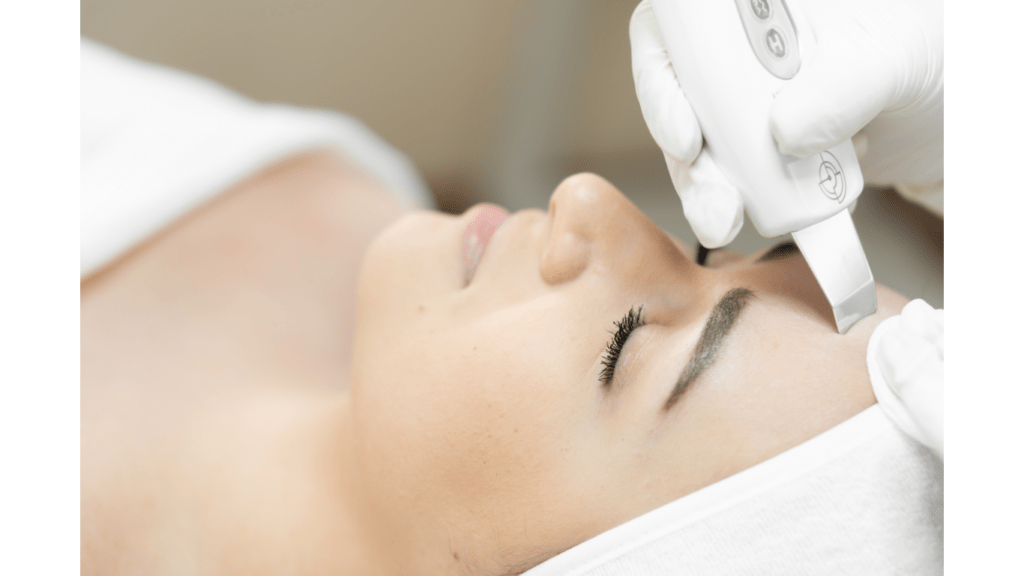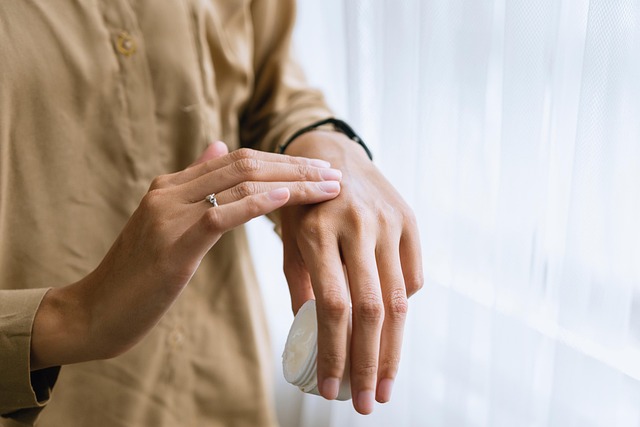The Evolution of Skincare and Cosmetics
From Ancient Rituals to Modern Science
Exploring the roots of skincare and cosmetics takes me on a journey from ancient rituals to the modern scientific advances that shape the products we use today. Millennia ago, civilizations like the Egyptians and Greeks valued skincare, using natural ingredients like honey and oils. Fast forward to today, where scientific research has revolutionized the industry, introducing innovative formulas based on cutting-edge technologies.
Fusing traditional wisdom with modern science, beauty products now offer a blend of natural extracts and laboratory-developed compounds. This synergy between ancient knowledge and contemporary innovation has elevated skincare and cosmetics to new heights, delivering products that not only pamper but also protect and nourish the skin effectively.
The Impact of Technology on Beauty Products
In the realm of beauty products, technology reigns supreme, driving advancements in formulations, delivery systems, and efficacy. Thanks to technological breakthroughs, skincare and cosmetics can now harness the power of ingredients at a molecular level, ensuring better absorption and targeted results.
From nanotechnology enabling the delivery of potent actives deep into the skin to artificial intelligence creating personalized beauty solutions, technology continually transforms the beauty industry. With the advent of smart devices and apps, consumers can now monitor their skin health, track product effectiveness, and receive tailored recommendations for a customized beauty regimen tailored to their unique needs. Beauty products today reflect a harmonious marriage between scientific innovation and consumer-centric personalization, promising effective results backed by cutting-edge technology.
Understanding the Ingredients
- When exploring the world of skincare and cosmetics, understanding the ingredients in your products is key to making informed choices. Let’s delve into the essential components that make up our favorite beauty formulations.
The Magic of Moisturizers and Serums
- Moisturizers and serums are the superheroes of skincare, packed with powerful ingredients that hydrate, nourish, and rejuvenate the skin. Ingredients like hyaluronic acid, retinol, and peptides work wonders in boosting skin elasticity, reducing fine lines, and promoting a youthful glow. By understanding the role of each ingredient, I can tailor my skincare routine to address specific concerns effectively.
Sunscreens: A Shield for Skin
- Sunscreens are not just summer essentials; they are year-round protectors against harmful UV rays. Ingredients such as zinc oxide and titanium dioxide form a physical barrier to shield the skin, while chemical filters like avobenzone and octocrylene absorb UV radiation. With a broad-spectrum sunscreen in my daily regimen, I ensure my skin stays youthful and healthy, safeguarded from premature aging and sun damage.
The Truth About Preservatives in Cosmetics
Preservatives in cosmetics play a crucial role in preventing microbial growth and maintaining the product’s shelf life. Common preservatives like parabens, phenoxyethanol, and ethylhexylglycerin ensure that our skincare and makeup products stay safe for use. By being aware of these ingredients, I can make informed decisions about the products I choose, balancing both safety and efficacy in my beauty routine.
The Physiology of Skin and Beauty Treatments
How Skincare Products Interact with Skin
- When skincare products come into contact with the skin, they penetrate different layers, such as the epidermis and dermis, to deliver active ingredients. These formulations work synergistically with the skin’s natural processes, enhancing hydration, promoting cell turnover, and protecting against environmental stressors. For example, hyaluronic acid in serums binds moisture to the skin, while retinol speeds up cell regeneration to reveal a smoother complexion. Understanding how these products interact with the skin enables us to choose the most suitable formulations for our skincare needs.
Cosmetic Procedures: Risks and Rewards
- Cosmetic procedures, whether surgical or non-invasive, offer transformative results but also entail potential risks. From Botox injections to laser treatments, each procedure comes with its own set of benefits and considerations. It’s essential to consult with a qualified dermatologist or plastic surgeon before undergoing any cosmetic treatment to understand the associated risks, downtime, and expected outcomes. While these procedures can enhance one’s appearance and self-confidence, being well-informed about the risks involved is crucial to making an informed decision for your beauty journey.
Myth vs. Fact in Beauty Regimens
Common Misconceptions in Skincare
Skincare myths often cloud our judgment when it comes to choosing the right products. One prevalent myth is that natural ingredients are always better for the skin. While some natural elements can be beneficial, it’s crucial to remember that not all synthetic ingredients are harmful. Another common misconception is that higher price tags guarantee better results. In reality, the efficacy of a skincare product is determined by its formulation and ingredients, not just its cost. Additionally, the belief that oily skin doesn’t need moisturizing is another myth. Moisturizing is essential for all skin types to maintain a healthy balance.
The Power of Evidence-Based Cosmetic Practices
Evidence-based cosmetic practices rely on scientific research and proven results to enhance skincare routines. They emphasize the importance of using products backed by clinical studies and dermatologist recommendations. This approach ensures that skincare choices are based on solid evidence rather than marketing gimmicks. By incorporating evidence-based practices into our beauty regimens, we can make informed decisions that prioritize the health and well-being of our skin.
Navigating the World of Beauty Products

How to Choose the Right Products for Your Skin
When selecting skincare and cosmetic products, it’s crucial to consider your skin type and specific concerns. Identifying whether you have dry, oily, combination, or sensitive skin can guide you in choosing the appropriate formulations. For instance, individuals with oily skin may benefit from oil-free products, while those with dry skin might require extra hydration from moisturizing creams. Understanding your skin’s needs is essential in tailoring your beauty routine for optimal results.
I always recommend conducting a patch test before incorporating a new product into your skincare regimen. Apply a small amount of the product on your inner arm and wait 24 hours to check for any adverse reactions. This simple step can help prevent potential irritation or allergic reactions, ensuring that the product is suitable for your skin.
The Role of Reviews and Recommendations
When navigating the vast array of beauty products available, reviews and recommendations can be valuable resources. Reading reviews from other consumers or seeking recommendations from dermatologists and skincare experts can offer insights into product performance and suitability.
I often look for recommendations from professionals or individuals with similar skin concerns to mine. Their experiences can provide valuable guidance on product efficacy and compatibility. Additionally, I pay attention to reviews that mention specific outcomes or benefits, helping me gauge whether a product aligns with my skincare goals.
Remember, while reviews and recommendations can be helpful, it’s important to consider individual preferences and skin differences. What works well for one person may not yield the same results for another, so personal experimentation may be necessary to find the perfect beauty products for you.
The Environmental and Ethical Side of Beauty
Sustainability in Skincare Production
- When it comes to skincare production, sustainability is a critical factor. As an environmentally conscious consumer, I prefer brands that prioritize eco-friendly practices. From sourcing ingredients responsibly to reducing carbon footprint in manufacturing, sustainable skincare production aims to minimize environmental impact. Opting for products packaged in recyclable or biodegradable materials is a simple yet impactful way to support sustainability in the beauty industry.
Cruelty-Free and Vegan Trends in Cosmetics
- The shift towards cruelty-free and vegan cosmetics reflects a growing awareness of ethical practices in beauty. I appreciate brands that refrain from animal testing and use plant-based alternatives in their formulations. Choosing cruelty-free and vegan cosmetics aligns with my values, supporting brands that prioritize animal welfare. It’s empowering to select products that not only enhance my beauty but also contribute to a more ethical and compassionate beauty industry.
Future Trends in Beauty and Skincare
Innovations on the Horizon
I’m excited to delve into the future trends shaping the beauty and skincare industry. Advancements in beauty tech are revolutionizing the way we approach skincare. From personalized skincare regimens to cutting-edge ingredients, the horizon is buzzing with innovation.
Cosmetic companies are investing heavily in research and development to create products that cater to individual skin needs. Imagine skincare tailored to your specific concerns, thanks to AI-powered analysis determining the ideal formulations for your skin type. This personalized approach is set to redefine the beauty landscape, providing tailored solutions for each unique individual.
Innovative ingredients like adaptogens and peptides are gaining traction for their remarkable skin benefits. These bioactive compounds work synergistically to boost skin health, combat aging, and enhance overall radiance. With a focus on natural and sustainable ingredients, beauty companies are harnessing the power of nature to create effective and eco-conscious products.
Personalized Beauty: The Next Frontier
Personalized beauty is not just a trend; it’s a movement towards individualized self-care experiences. Imagine a world where skincare products are customized to address your skin’s specific needs and concerns. This tailored approach ensures that you receive targeted treatments that deliver optimal results.
With advances in technology, beauty brands are leveraging data analytics and AI algorithms to create personalized skincare solutions. By analyzing factors such as skin type, environmental influences, and lifestyle habits, companies can formulate bespoke products that cater to each consumer’s unique requirements.
The rise of personalized beauty signals a shift towards empowering individuals to take control of their skincare routines. By providing customized products that address personal skin goals, brands are fostering a sense of empowerment and self-expression. This trend not only enhances the efficacy of skincare regimens but also elevates the overall beauty experience to a new level of luxury and sophistication.
The future of beauty and skincare is bright, with innovations driving a shift towards personalized, sustainable, and effective products. Embracing these trends will not only enhance our beauty routines but also promote a more conscious and inclusive beauty industry.


